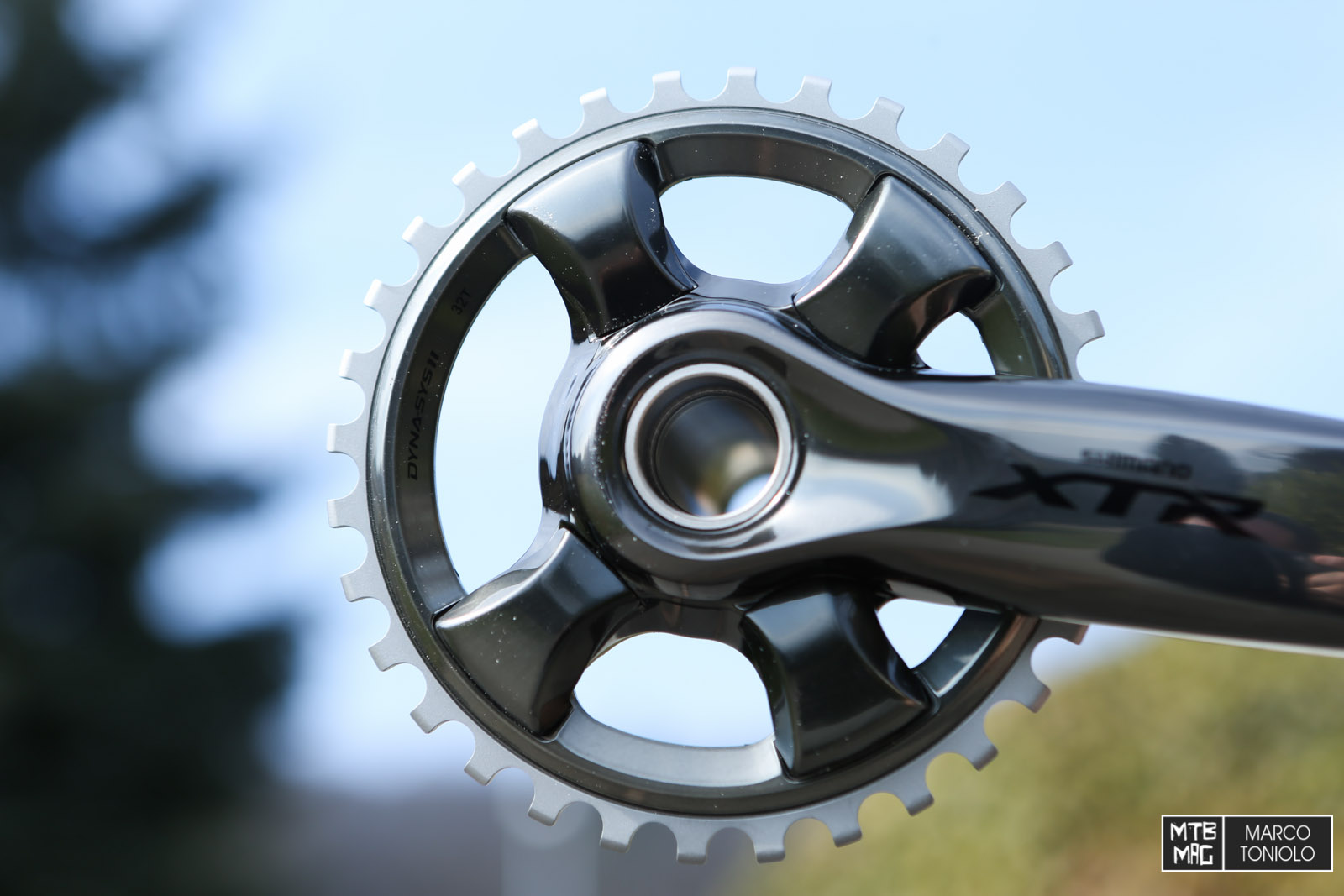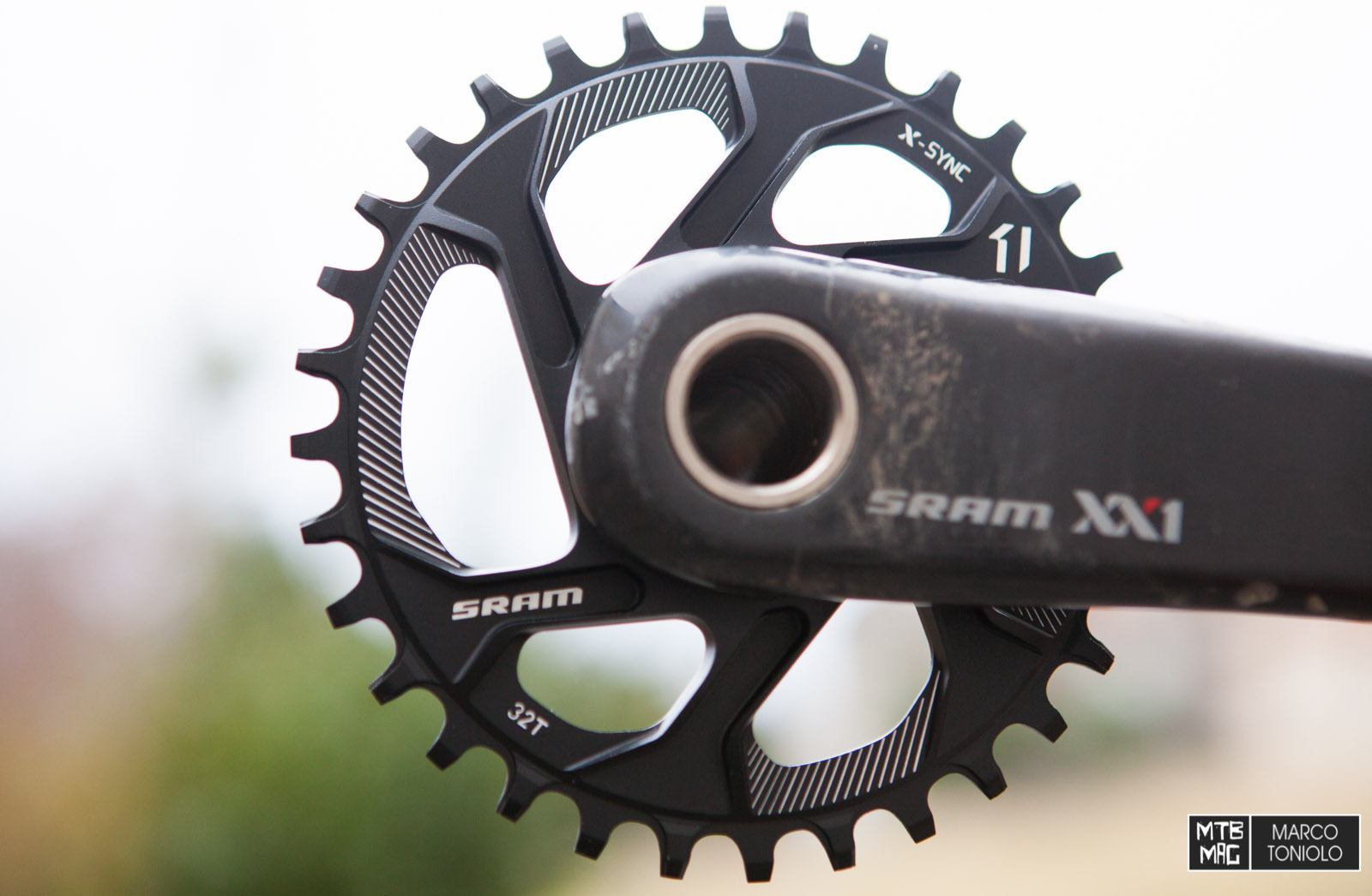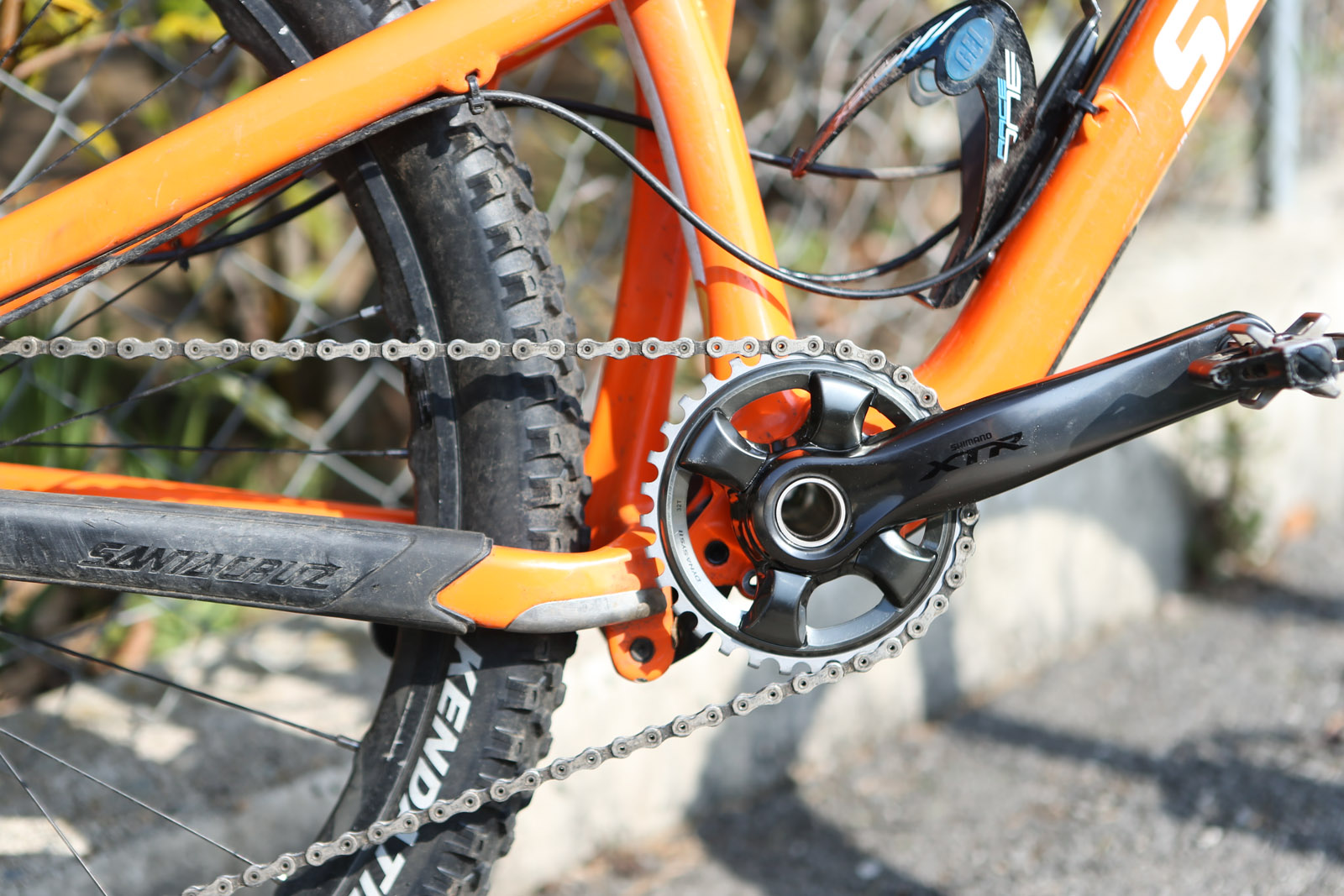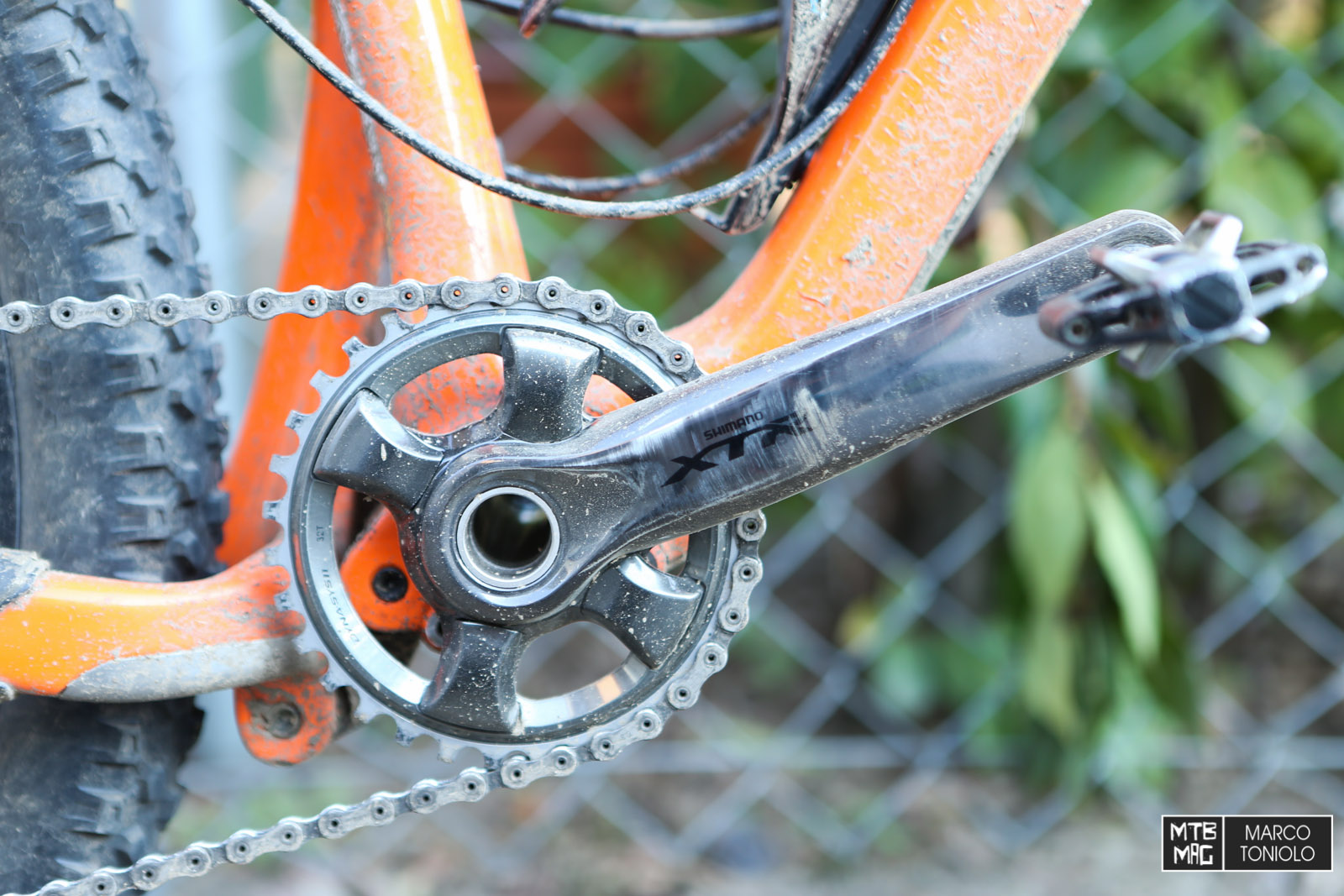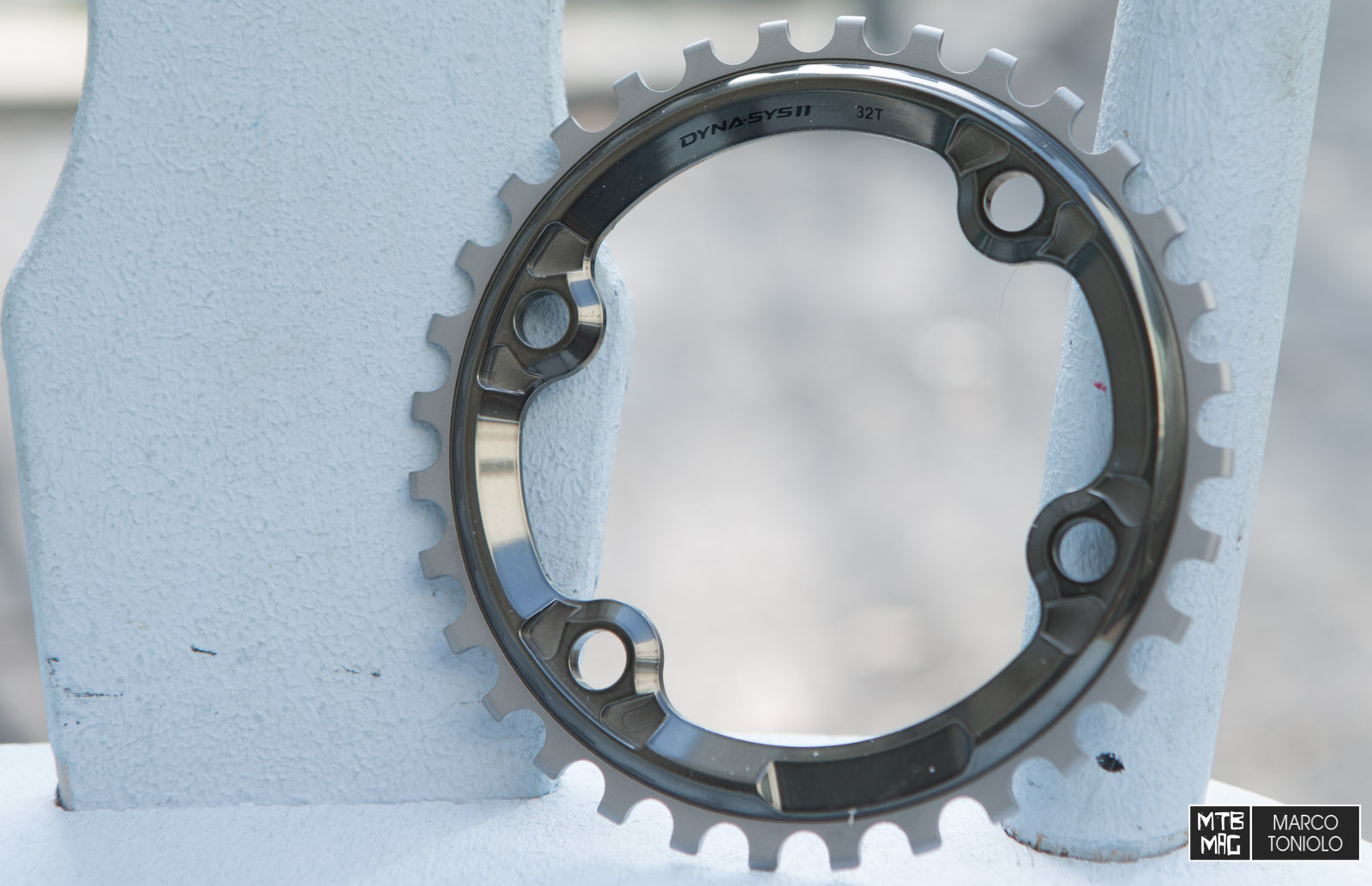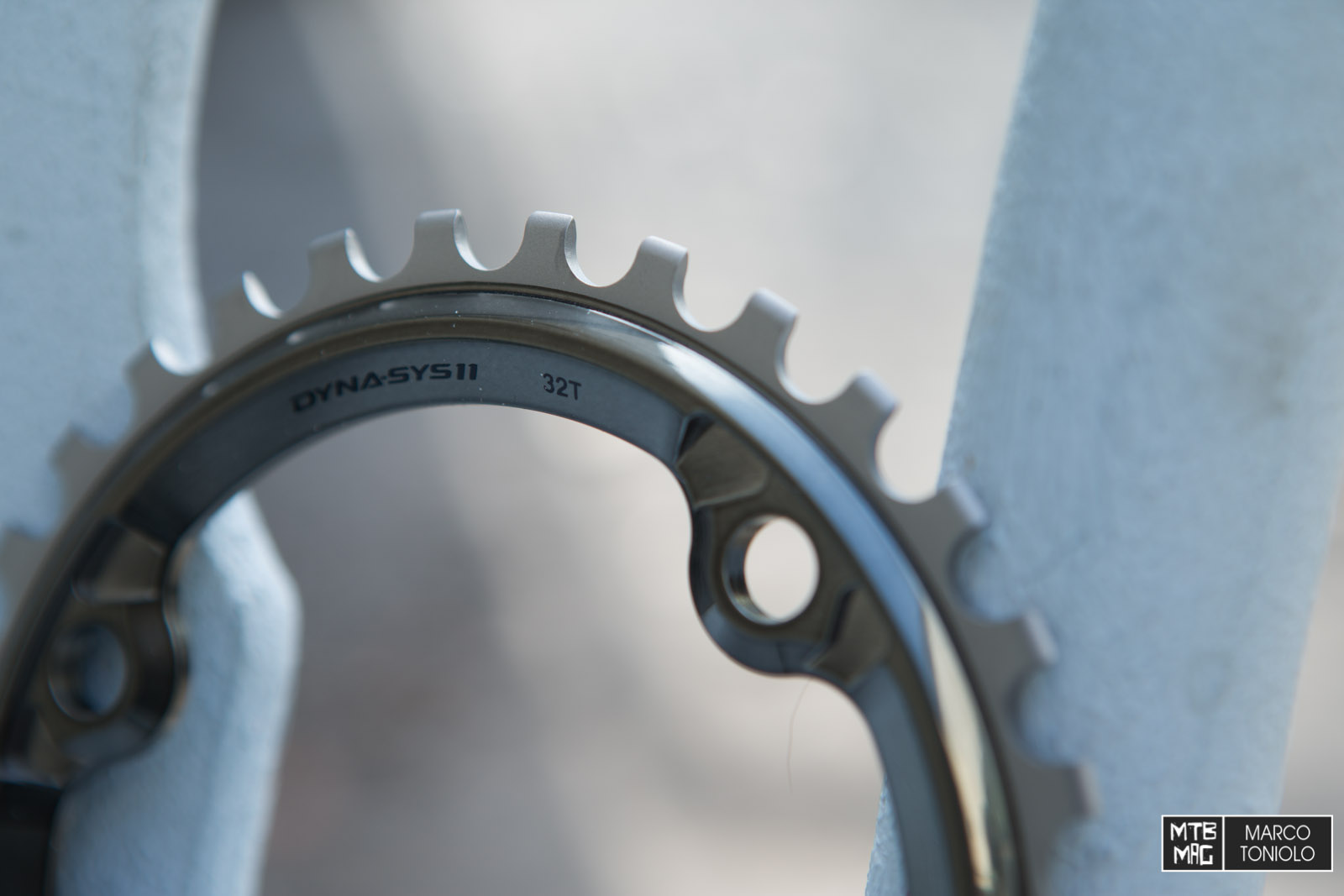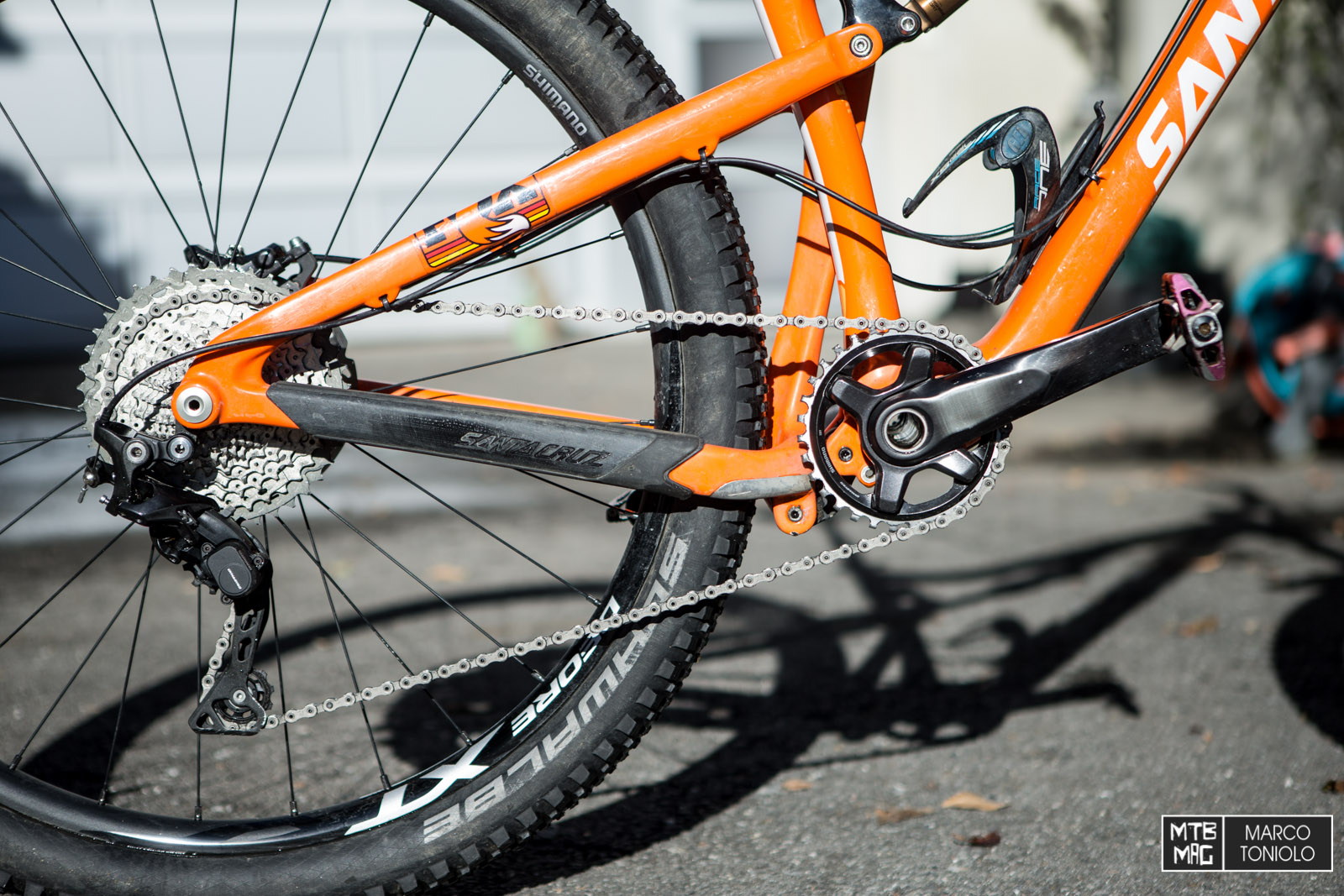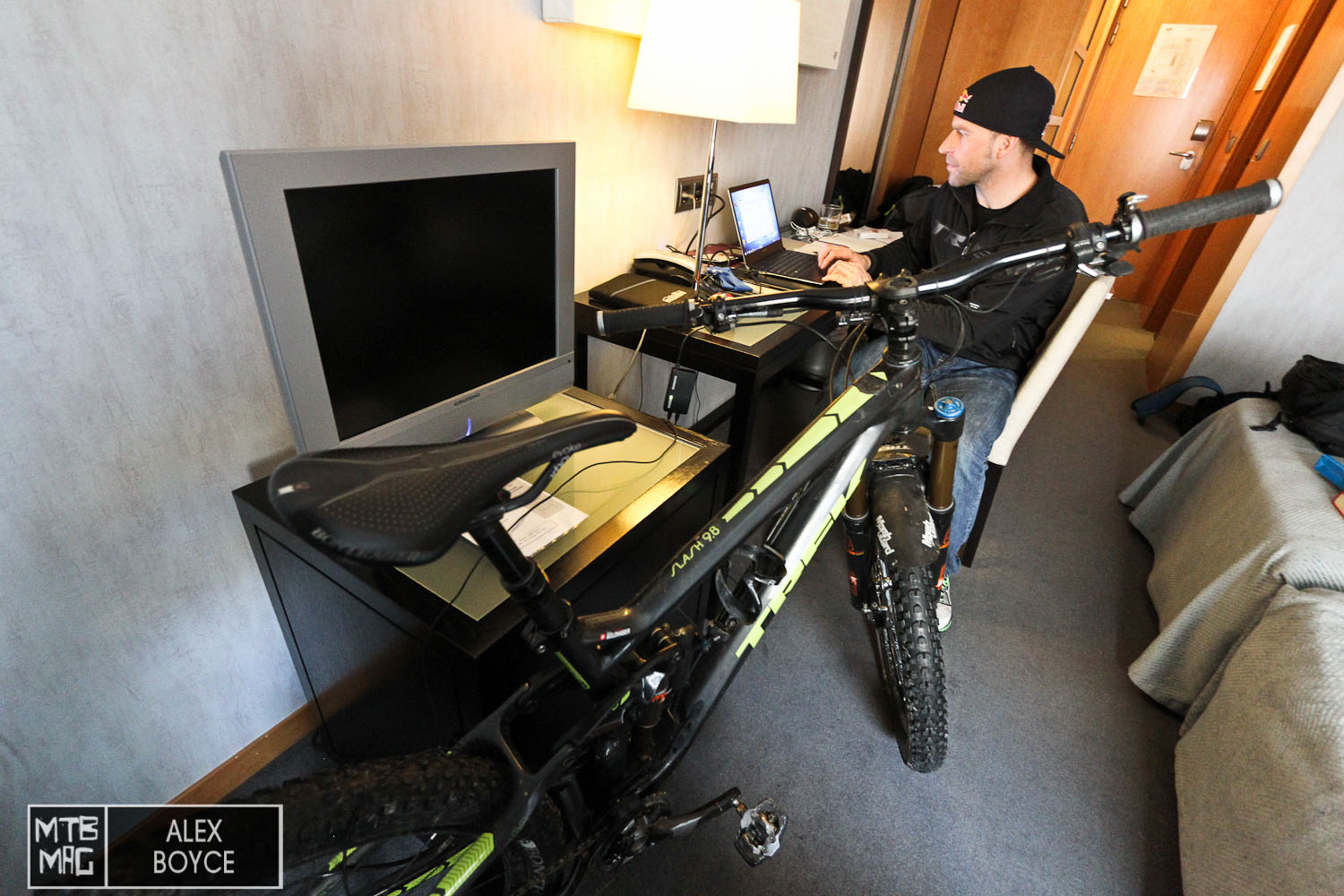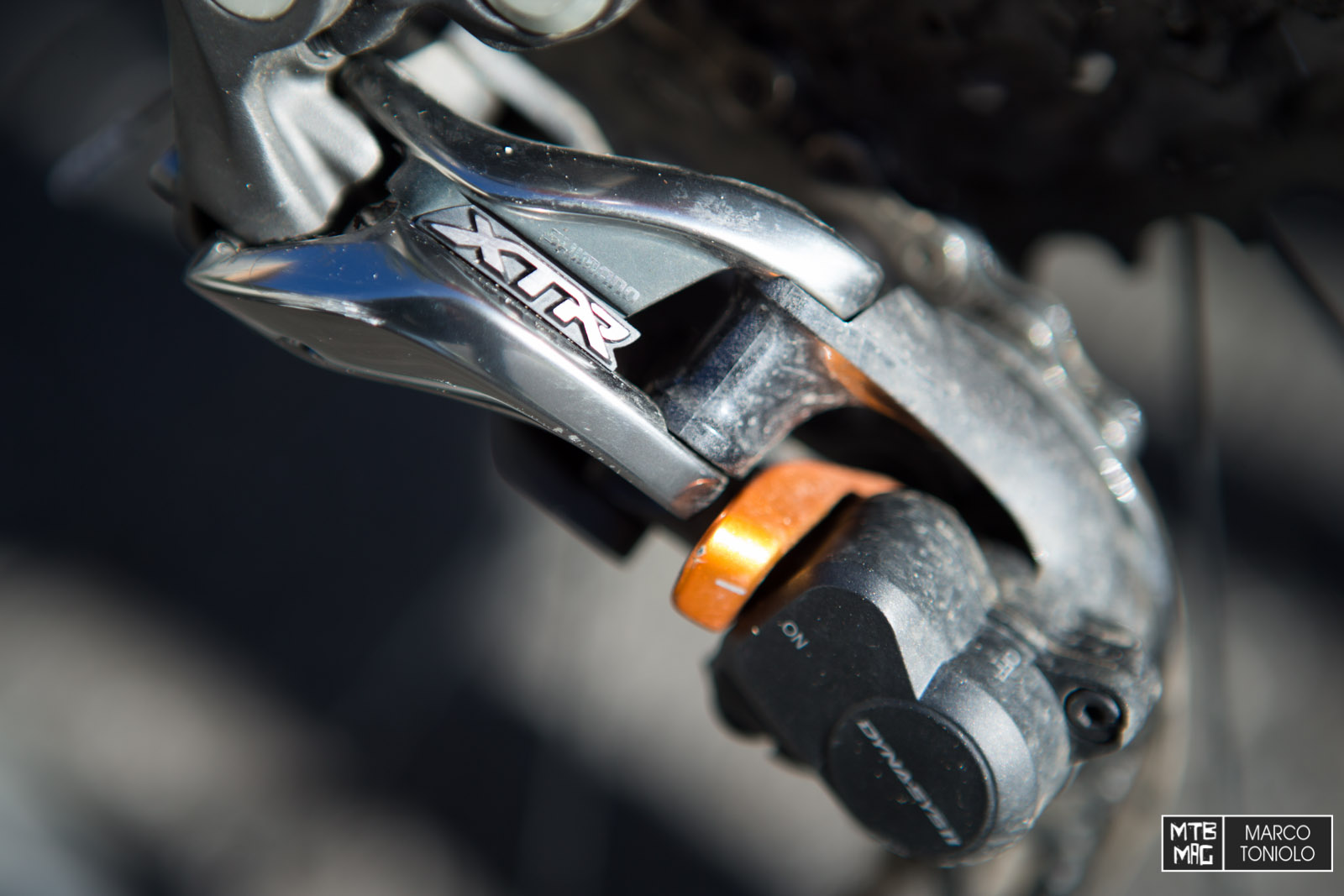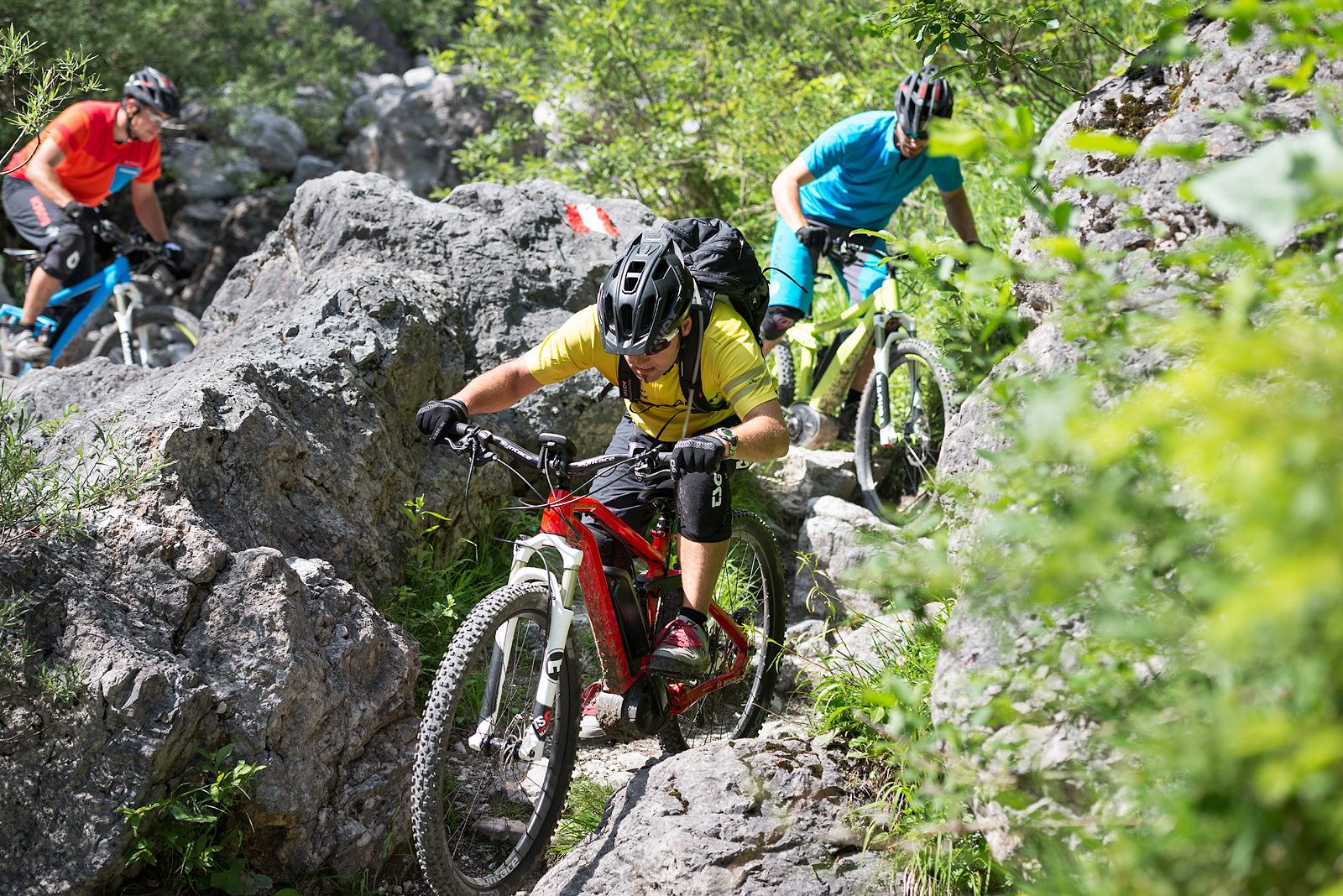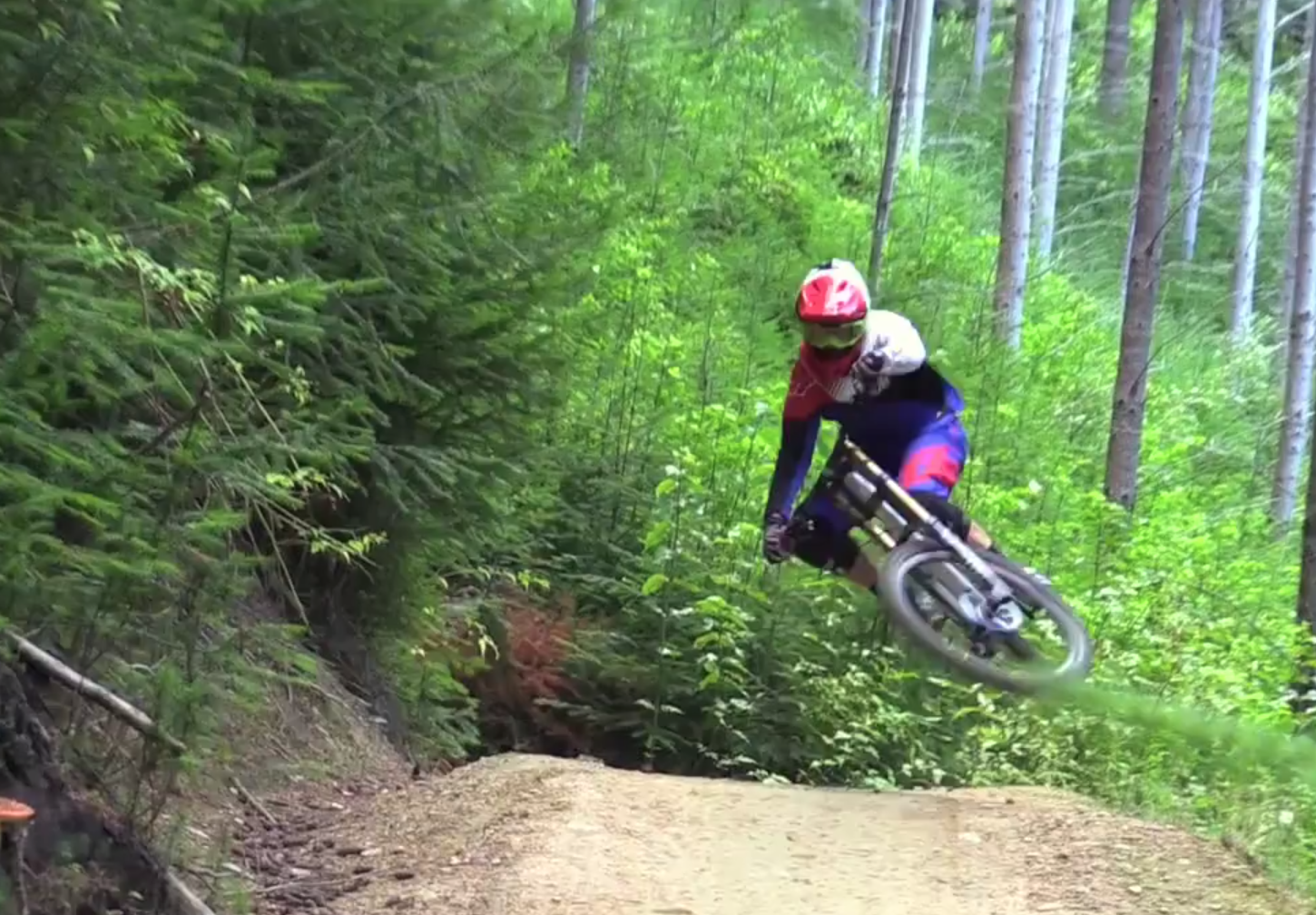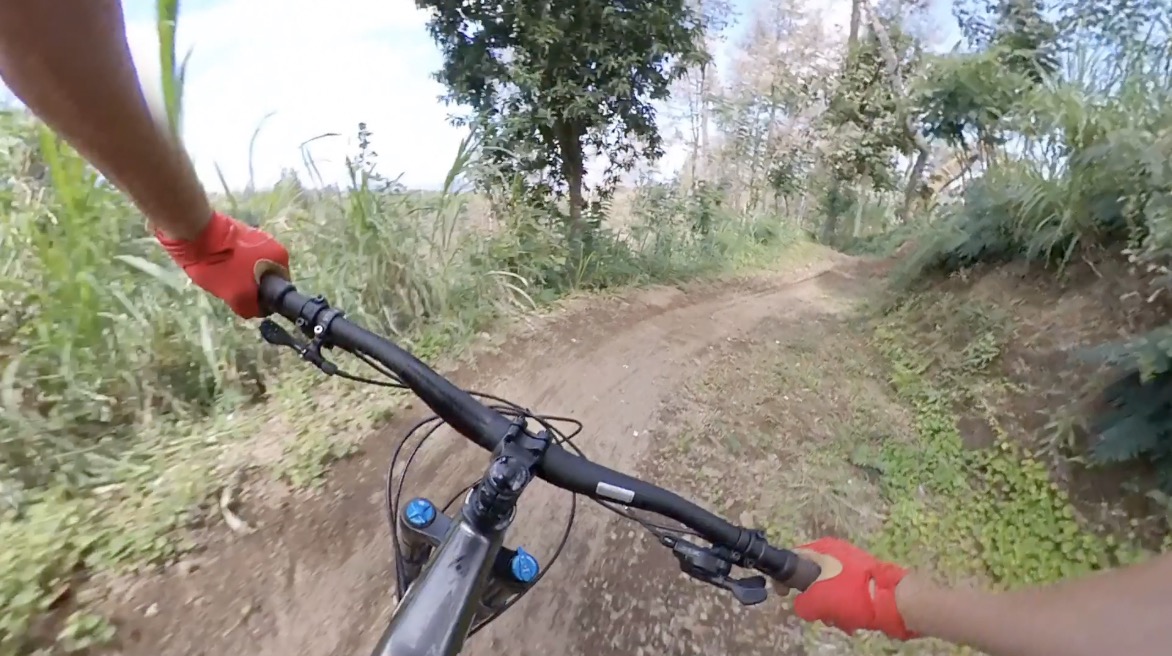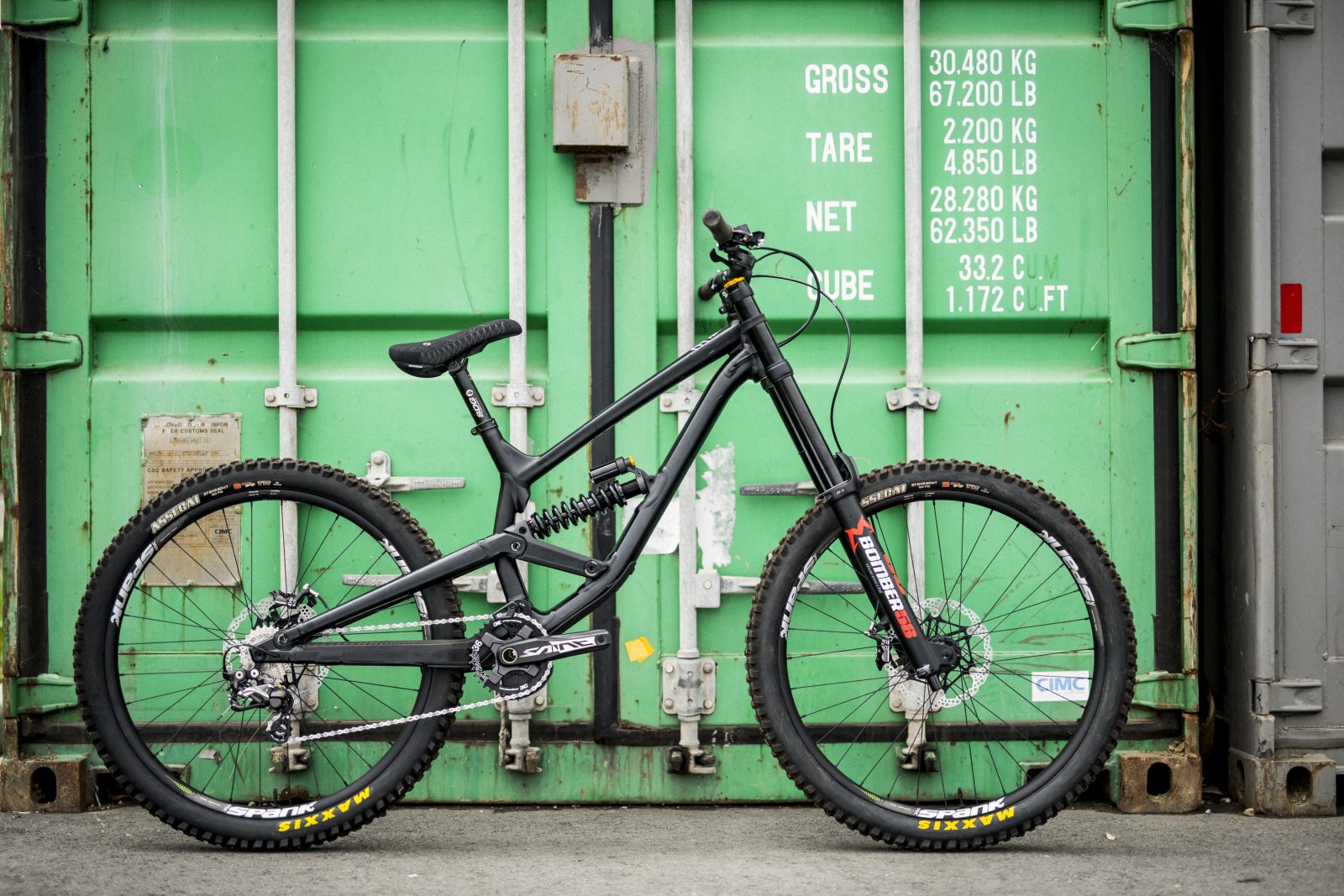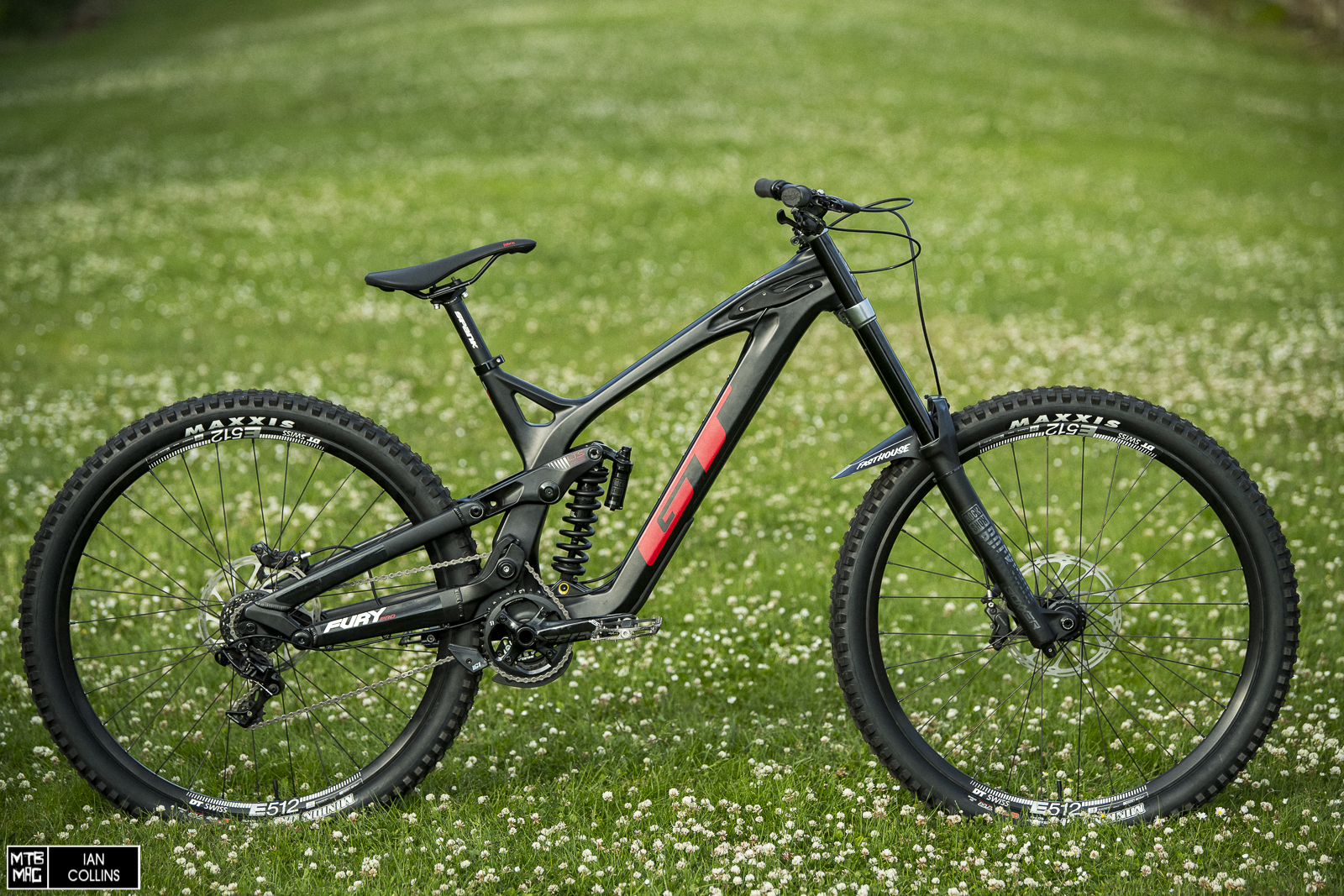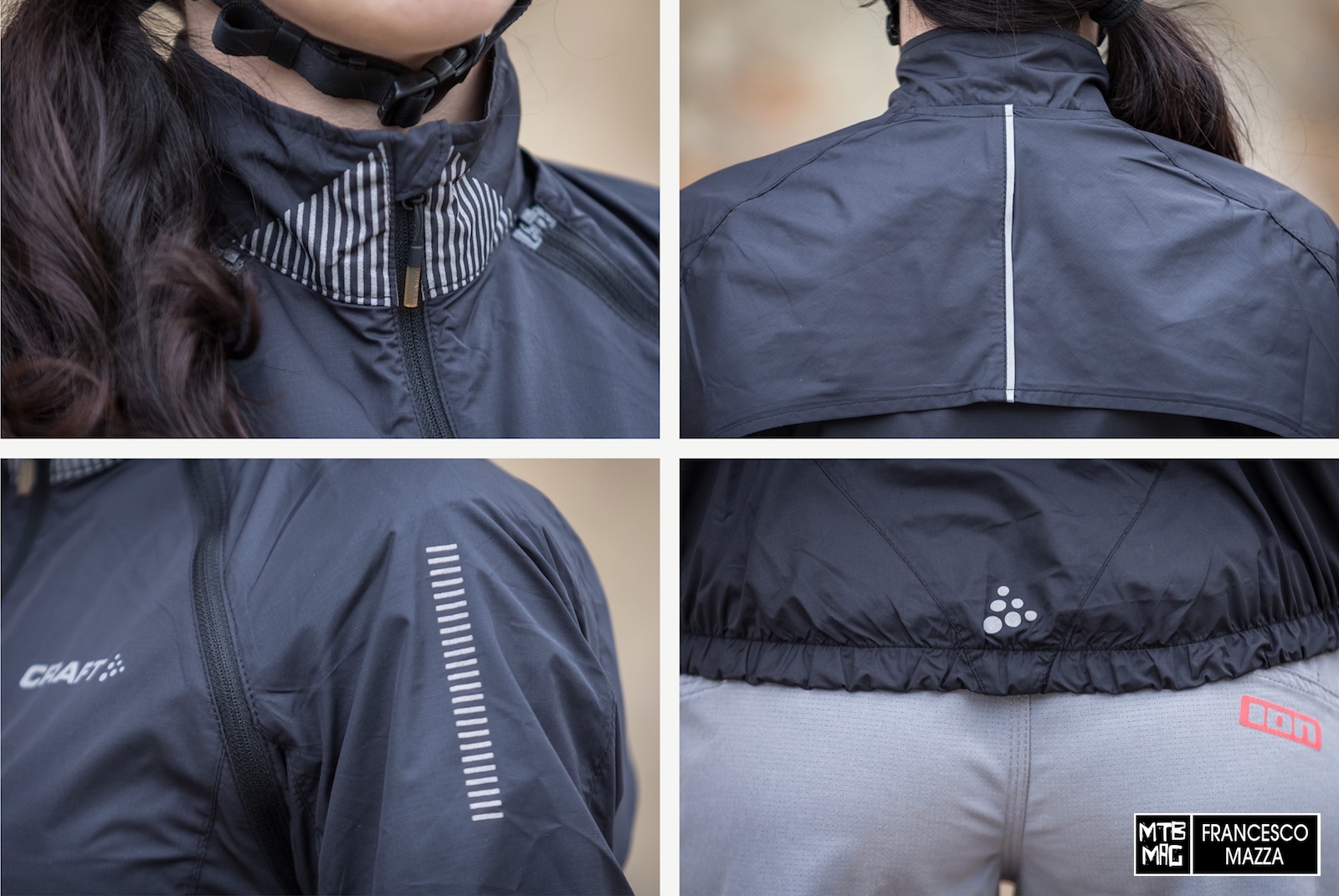Some weeks ago we published our first review of the new Shimano XTR 1×11 group. For that review we had been using a Race Face Next SL crankset, because the Shimano 1×11 version wasn’t ready yet. The Japanese brand explained to us that first they produced the 2×11, then the 3×11 and finally the 1×11, due to their selling figures. Today we received Shimano’s own 1×11 crankset.
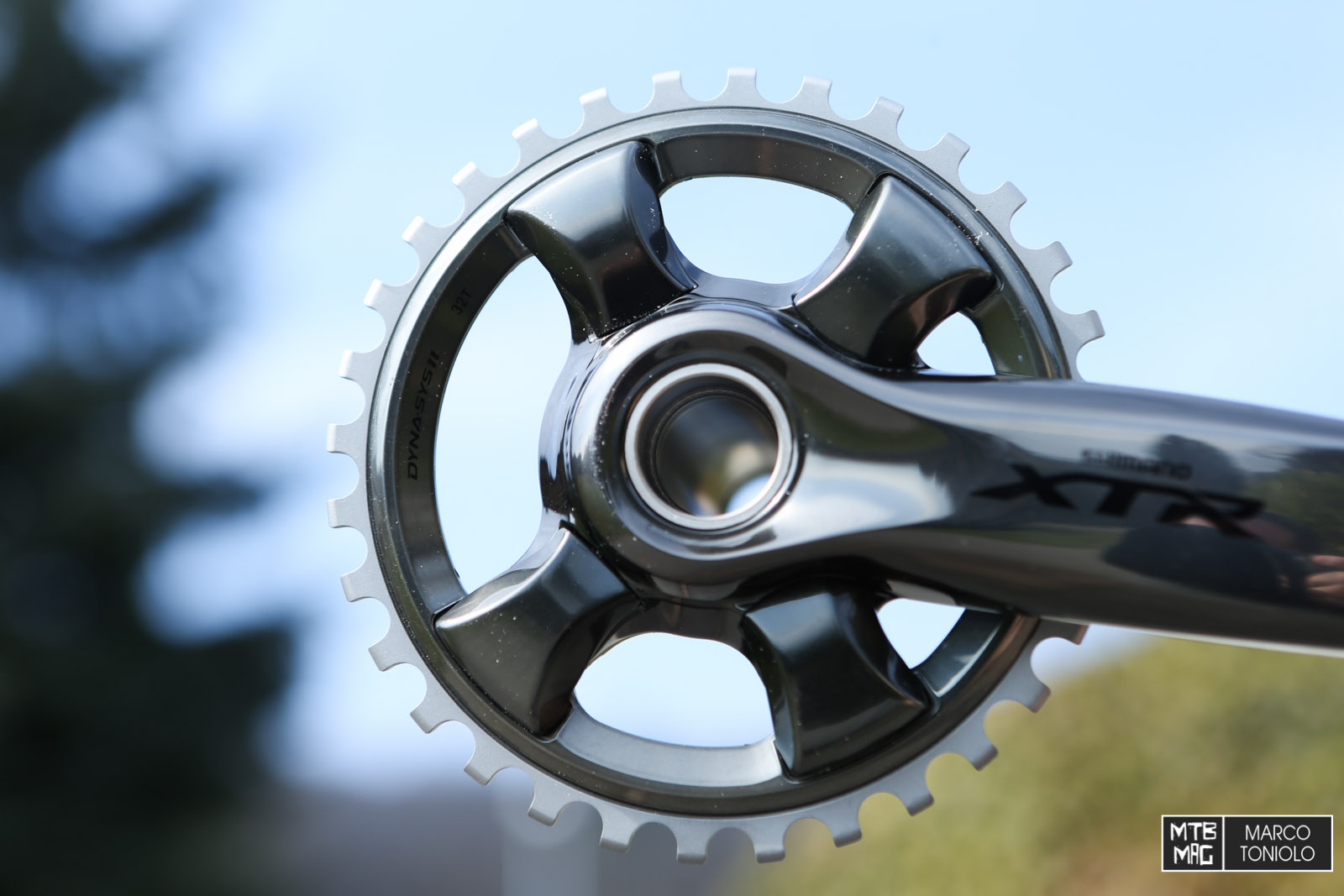
What interested us the most was the tooth design, because it’s key for proper chain retention – particularly when one doesn’t use a chainguide or a bash ring. As you can see, the teeth are all the same, without the “narrow – wide” design, typical of their competitor SRAM.
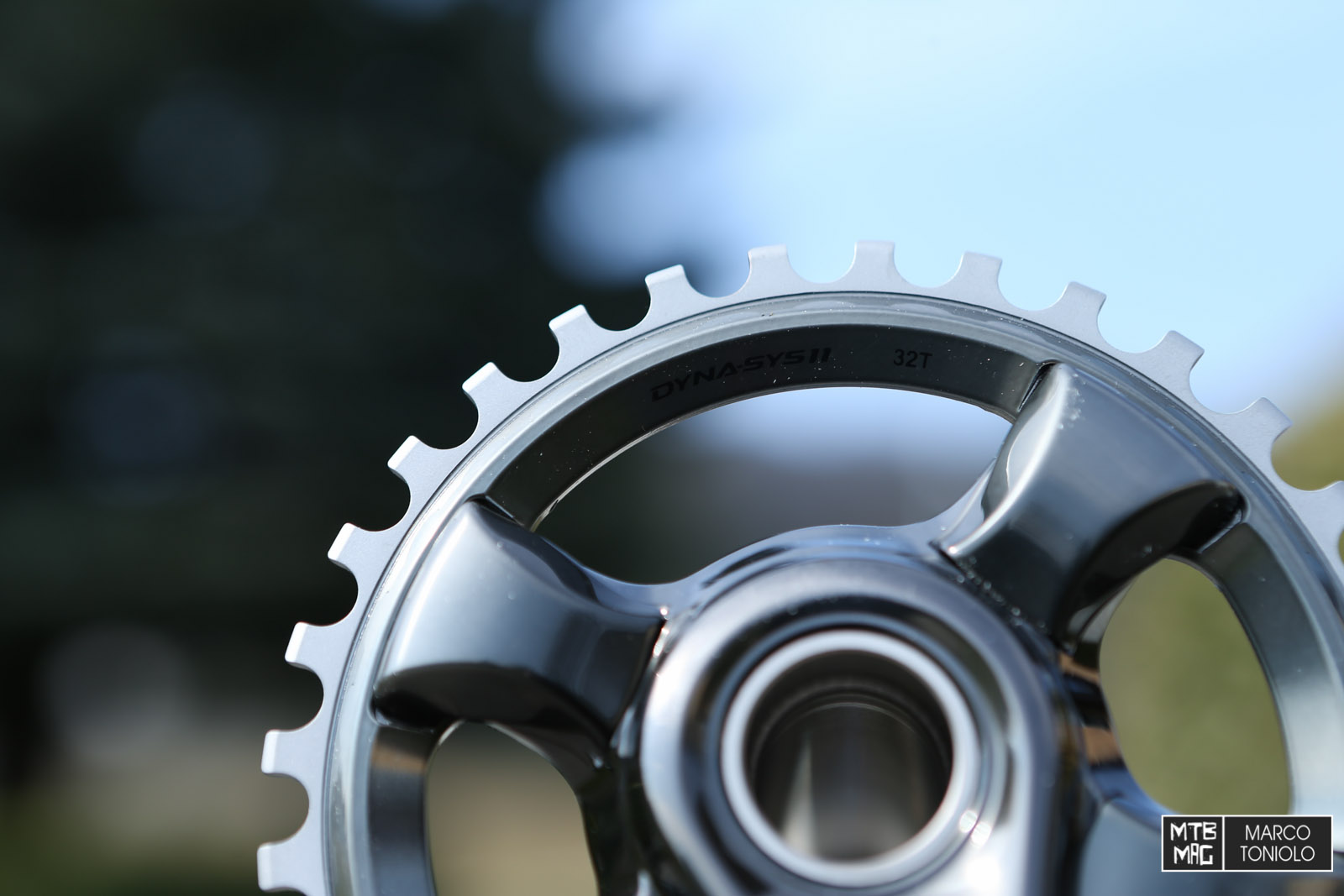
The teeth are completely different from those on the Shimano 2×11 chanirings, because in that case the chain has to move between the chainrings.
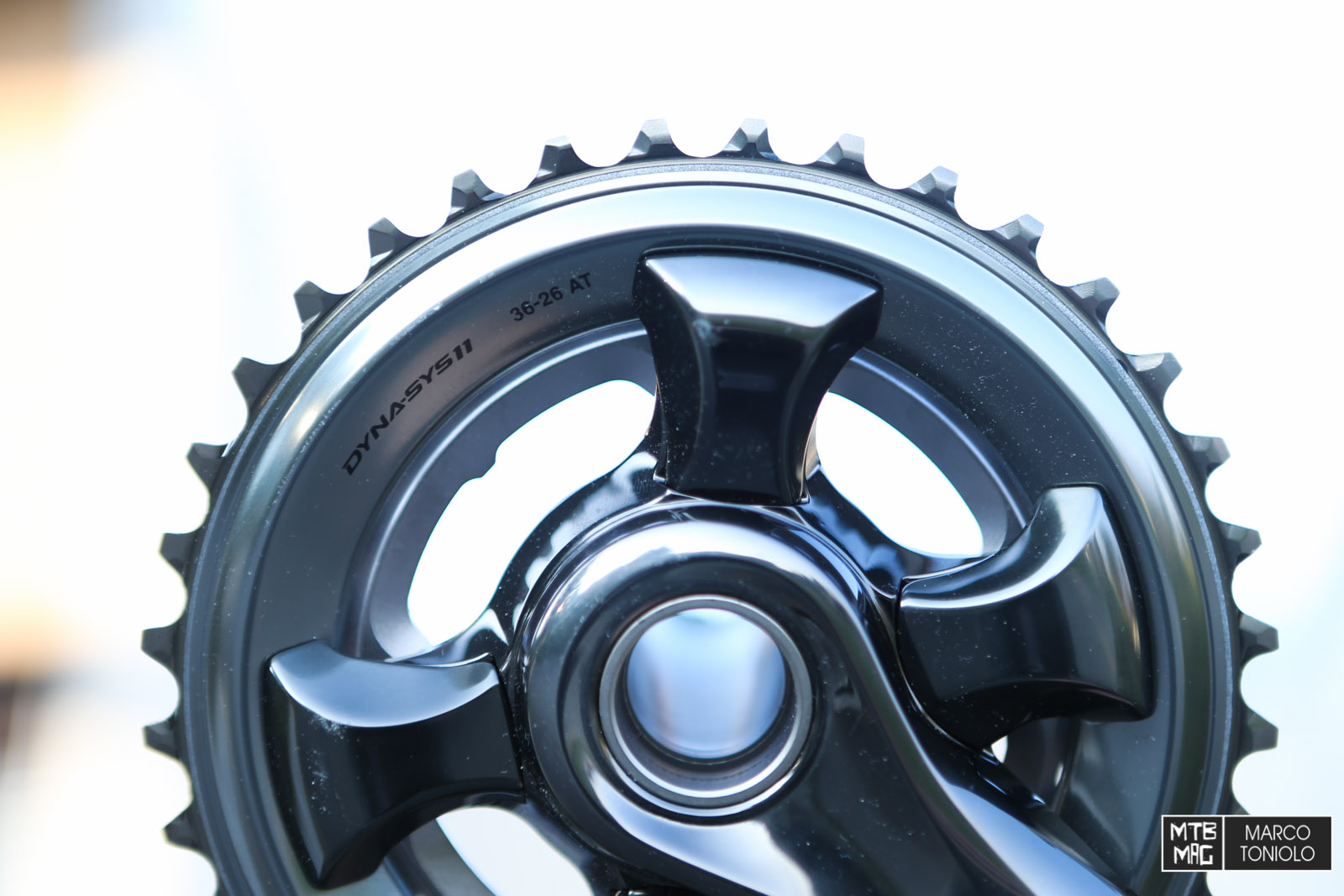
Below you can see the SRAM XX1 tooth design for comparison sake.
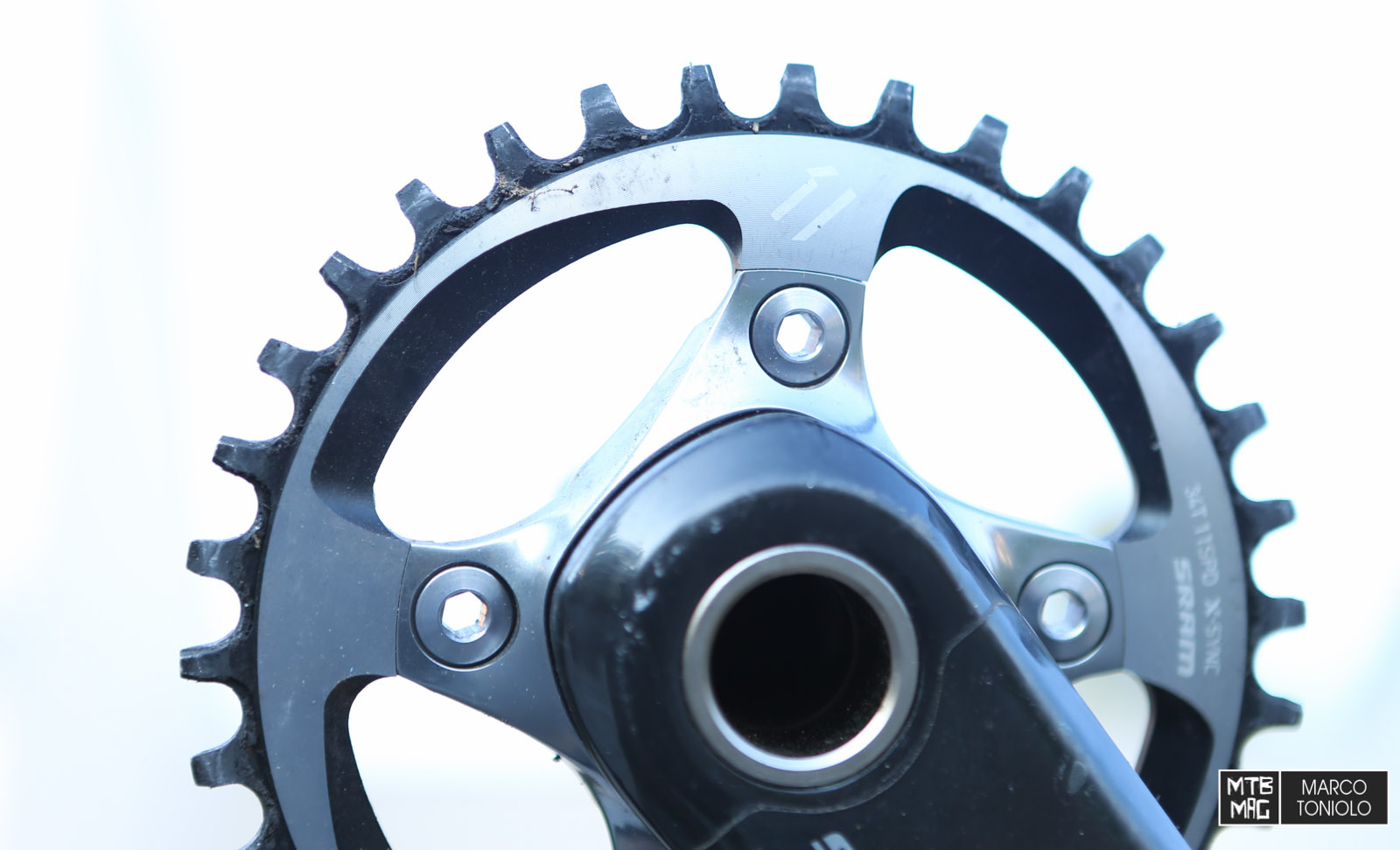
Bolting the chainring up or changing it is really easy. All you have to do is to use the four provided nuts and tighten them in the spider. It’s refreshing that there is no need to disassemble the cranks to switch between chainrings.
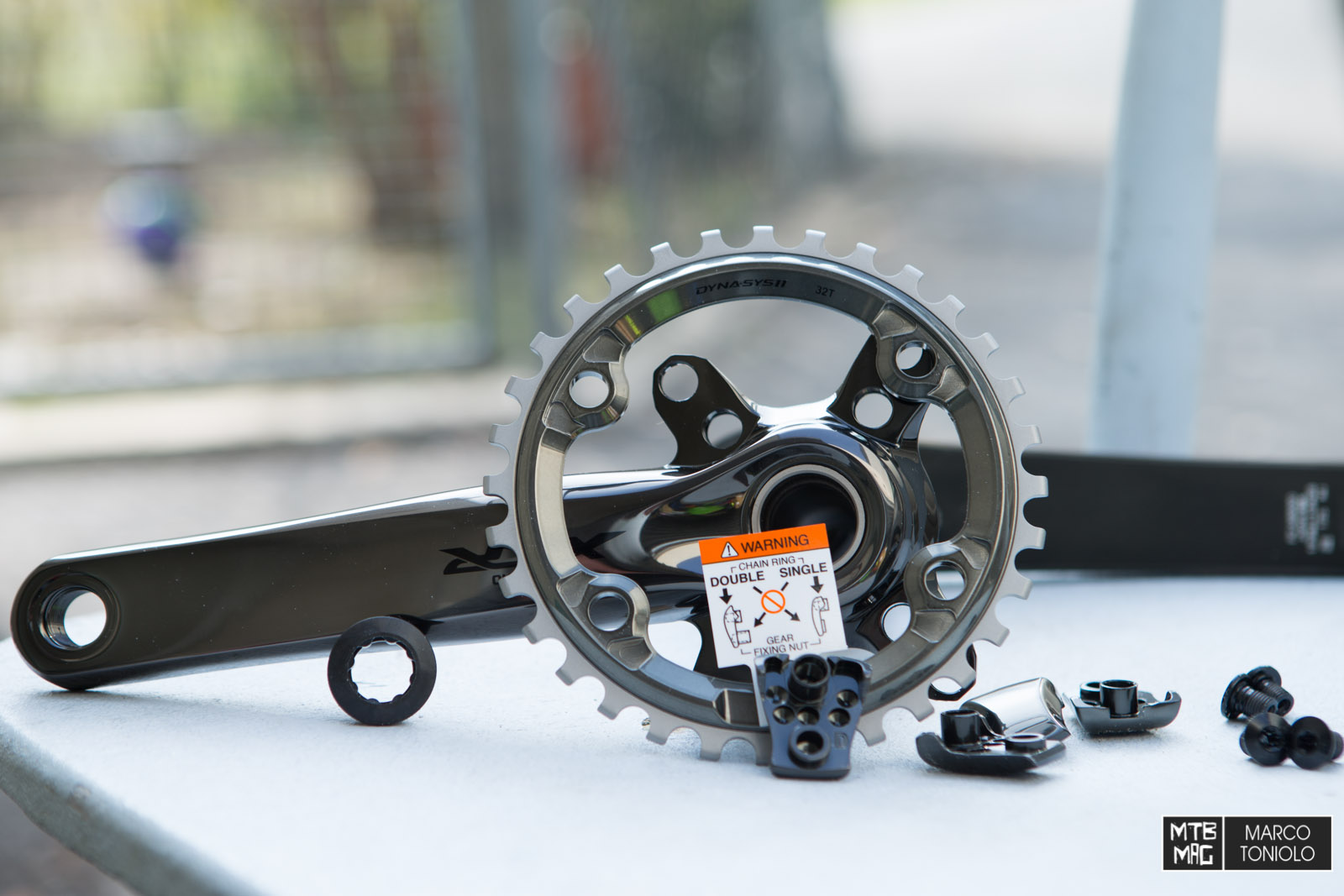
On the back of the cranks you can see the 4 additional holes for the second chainring.
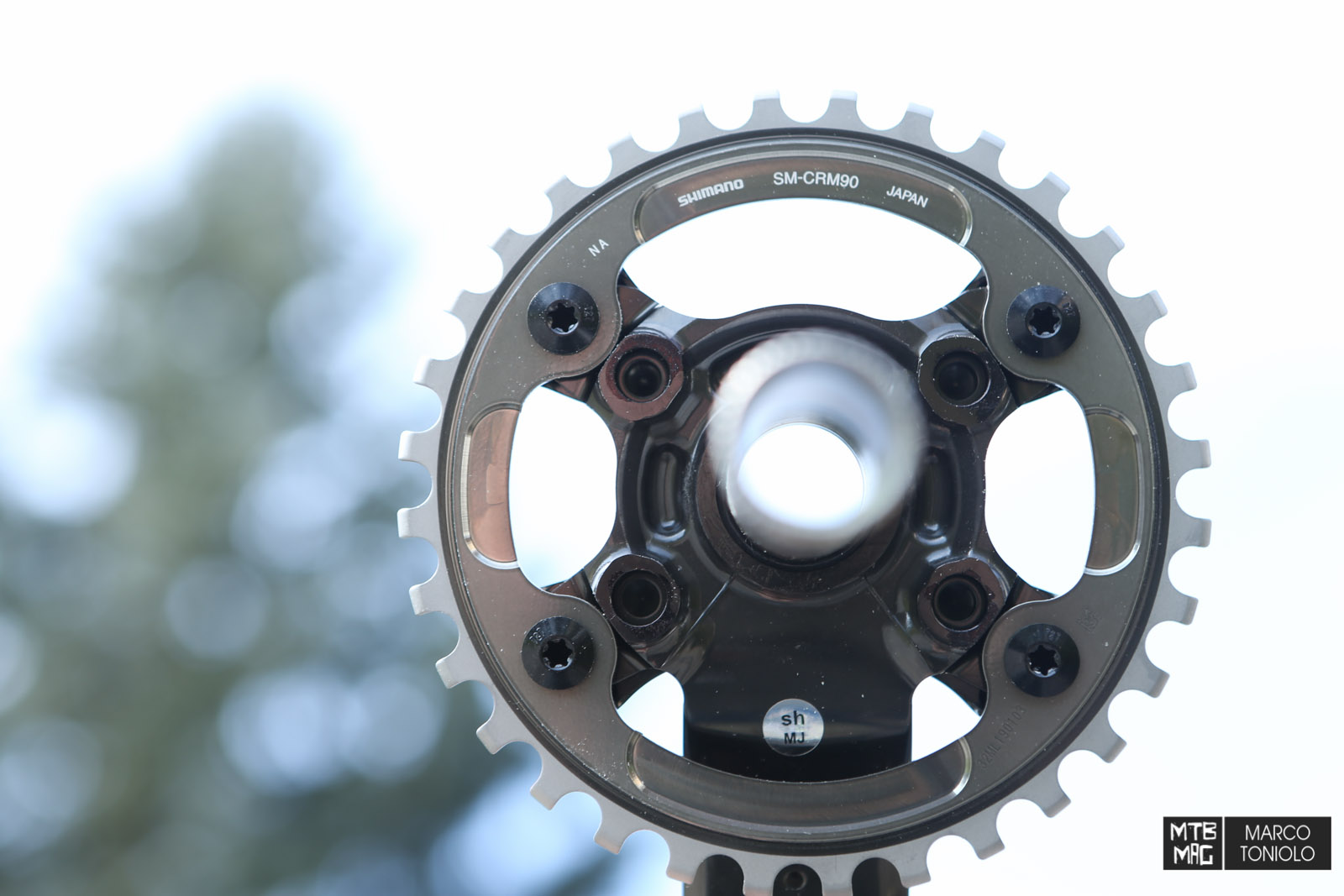
2×11 on the left and 1×11 on the right.
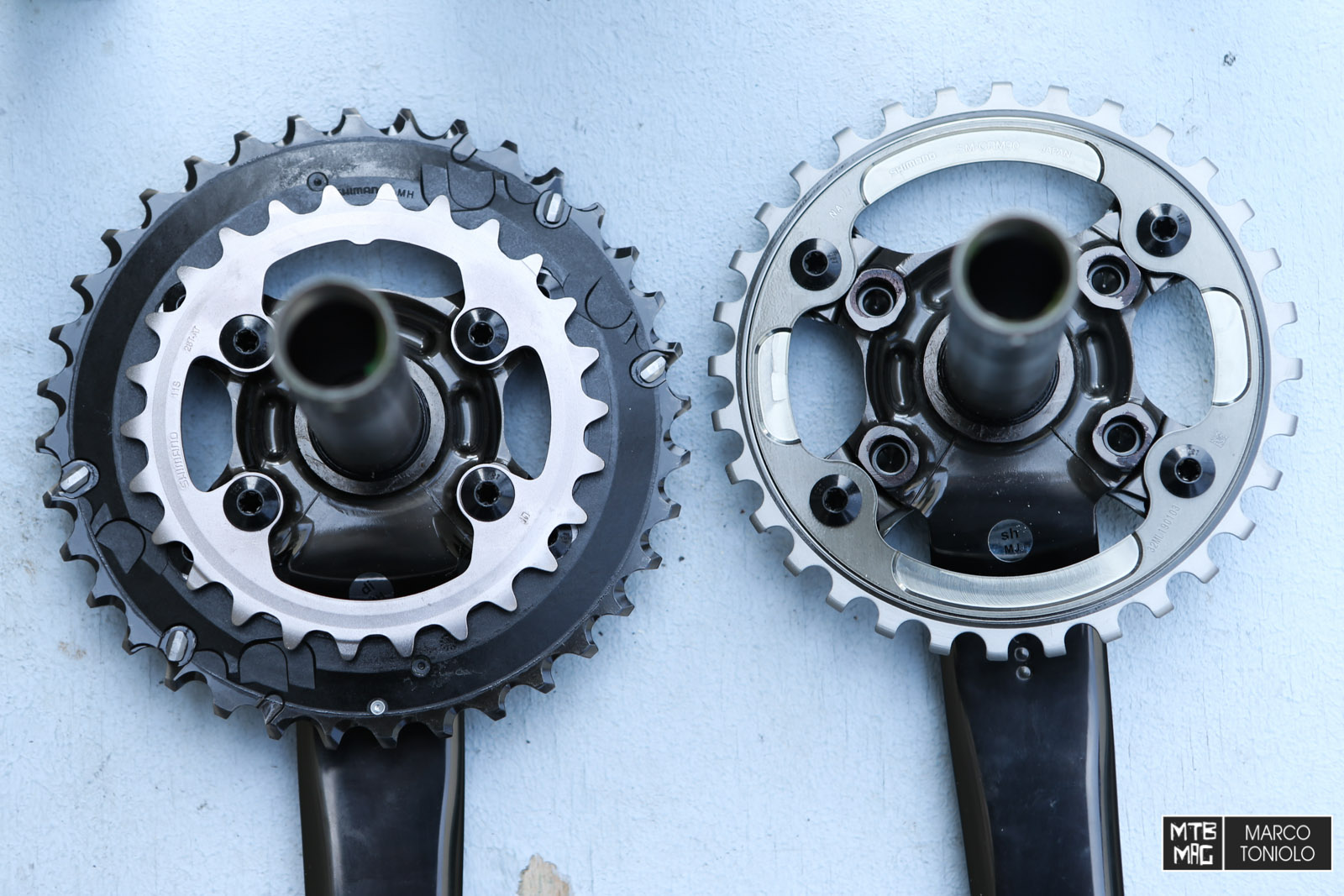
The weight is always a central topic when discussing XTR. We compared the SRAM XX1 and Shimano XTR cranks, both with a 32T chainring and their axle.
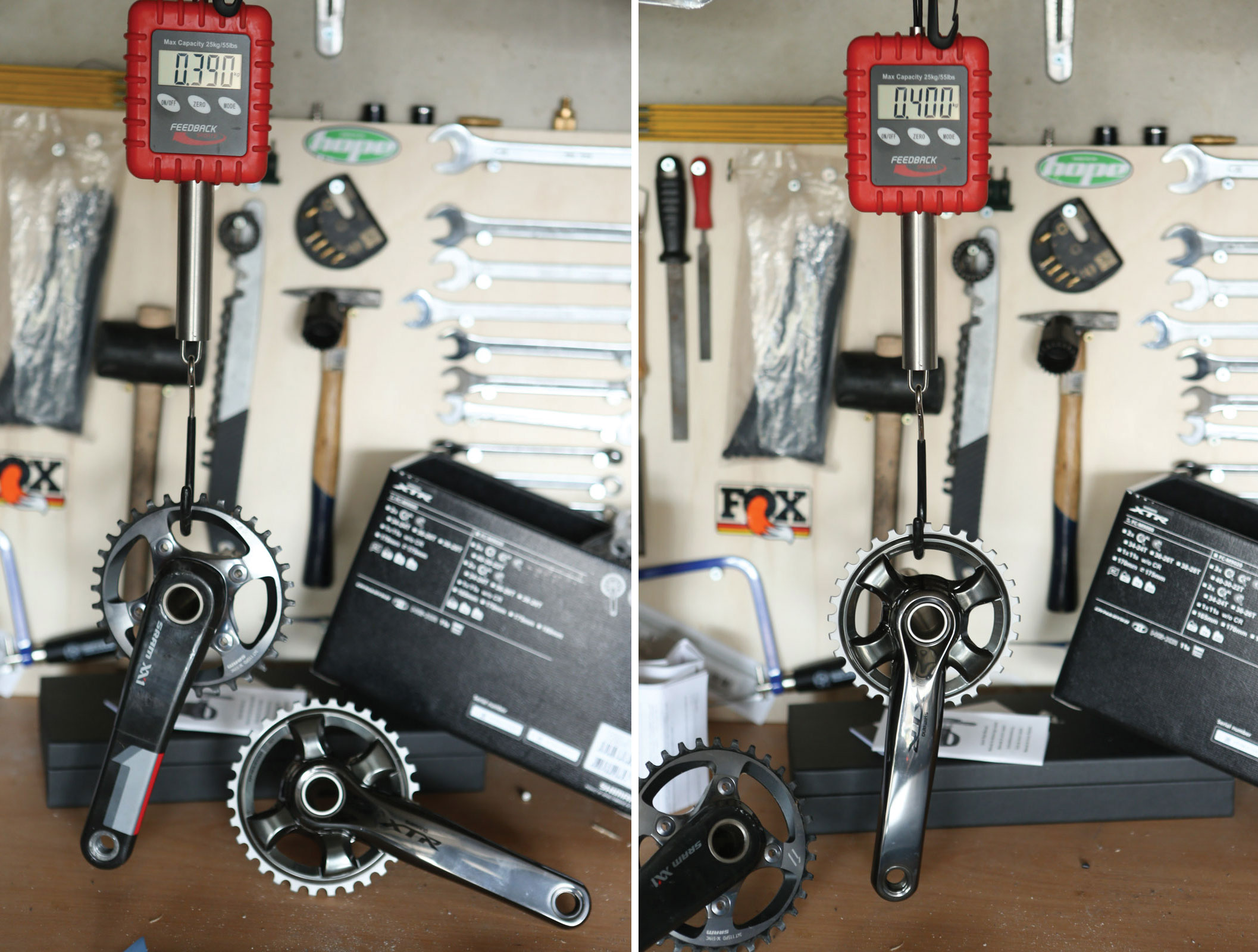
There is only a 10 gram difference but that becomes 50 if the XX1 crank is spiderless (its weight being 350 grams)
2×11 Shimano XTR: 440 grams.
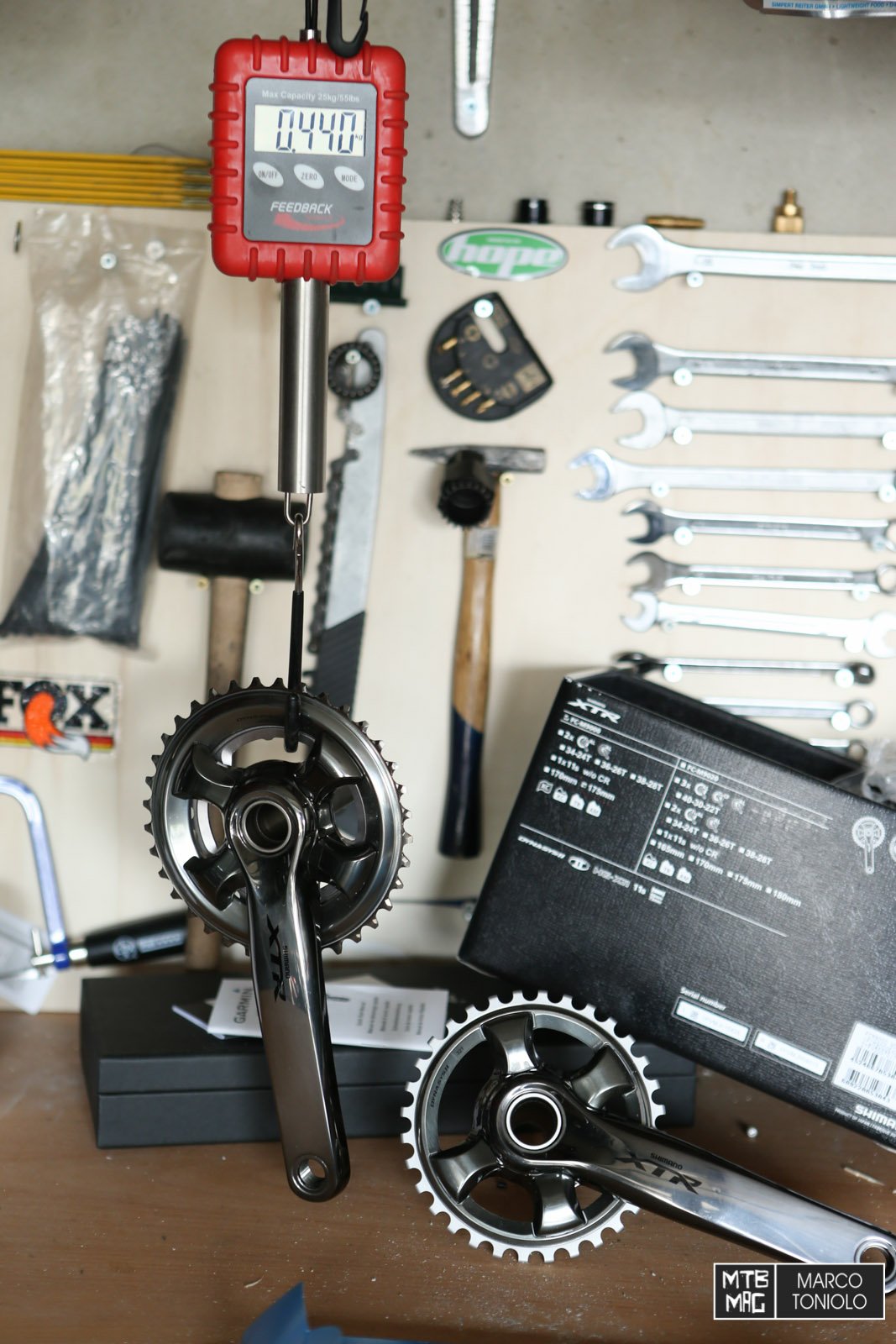
The assembly is the same as all Shimano top of the line products.
First riding impression
Today, for the first time we rode the Shimano 1×11 crankset, trying to answer to the question that bothered us from the beginning: how well does the chainring tooth design work on the trail? We chose some trails with lots of roots and some fast compressions where the rear suspension gets really smashed frequently. This is where you quickly find out if the chain retention system works well.
We haven’t had any kind of problems thus far. The rear derailleur’s clutch works really well, despite the shifting becoming a little bit harsher (read more here), easing the work of the front chainring. There wasn’t a lot of mud on our ride, but this is more of a critical factor for the front derailleur shifting and not as critical to a single chainring system’s performance.
For now the XTR 1×11 system is working well, stay tuned for the long term review!

